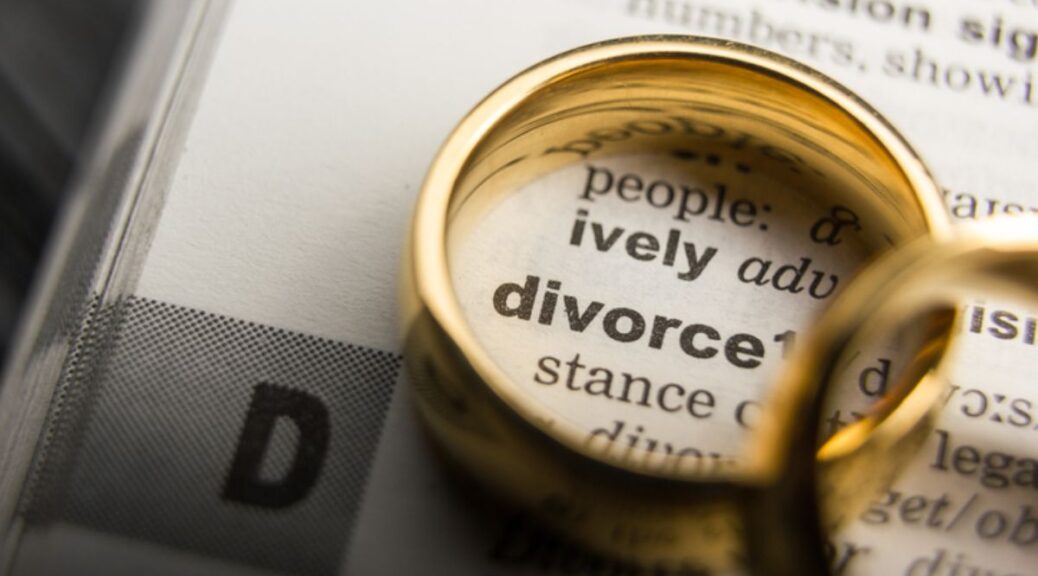Ending a marriage can be extremely stressful, especially when unsure of what to expect during your divorce. One way to help minimize stress is by learning about California divorce before your case begins. Here are 5 things you need to know about California Divorce:
1) Divorce is an Emotional Process with Legal Consequences
Divorce can be one of the most emotionally difficult experiences a person may have during their lifetime. For many spouses, engaging in the process will involve making an abrupt and painful transition from being partners to becoming legal adversaries.
Divorce impacts virtually every area of a person’s life, and emotions can run high. At the same time, the choices you make during your California divorce can have significant long-term legal implications. It’s important to recognize that the pain and stress of the situation can influence your decision-making. Under these circumstances, having the advice and advocacy of an experienced California divorce attorney is crucial. Your divorce lawyer can help you evaluate your case from a neutral perspective and provide the guidance you need to make informed decisions.
2) California is a No-Fault Divorce State
When a marriage ends, it’s not uncommon for one or both partners to believe that the other is to blame. You may be getting divorced because your ex had an affair, was violent, or was emotionally unavailable. Although these are valid reasons to leave a marriage, they are not legal grounds for a California divorce. The reason is that California is a no-fault divorce state.
That means that a California couple can get divorced without having to prove that one or both of them are responsible. The law also does not provide a basis to allege that anyone was to blame.
Essentially, all that is required is for one party to plead that the couple has irreconcilable differences. However, that does not mean a spouse’s adultery or domestic violence is irrelevant during divorce. To learn more about how your ex’s conduct may impact your divorce, you should consult with an experienced California divorce attorney.
3) No One “Wins” a Divorce Case
Sometimes, spouses can get caught up in trying to “win” their divorce case. This can look different for different people. In some cases, exes may fight one another on seemingly every decision during their divorce just for the sake of getting their way. In others, one or both may have unreasonable expectations of getting all or most of the couple’s shared assets.
These types of disputes are often fueled by resentment and pain and have more to do with punishing the other person than getting through the divorce. Divorce cannot make things even or bring a sense of justice to your situation. Instead, your California divorce will involve finding a way to divide your assets equitably, deciding custody based on what is in the children’s best interest, and, if applicable, determining appropriate support. No one “wins” a divorce case, but with the right counsel and approach, navigating the process and obtaining equitable results is possible.
4) California is a Community Property State
Another important thing to know about California divorce is that California is a community property state. This means that, outside of certain limited exceptions, what spouses earn and acquire during their marriage belongs to each person equally. For example, if you bought a house in your name only
during your marriage and used community funds to make the purchase, your spouse will probably have equal ownership rights to the dwelling. Likewise, each of you will have a community interest in the other’s retirement accounts for contributions made during the marriage.
However, there can be circumstances when spouses can agree not to divide community assets. In addition, resources acquired before marriage, inherited, and gifted property are not generally community property. You and your California divorce attorney can evaluate your assets and determine how community property law will apply to you and your circumstances.
5) California Family Courts Favor Shared Custody
Child custody can be one of the most contentious issues during a California divorce. The divorce court is charged with making decisions that are in the best interest of minor children during this type of case. Outside of evidence that a parent is unsafe or not involved in a child’s life, the court will generally favor joint (shared) custody.
There are two types of child custody in California—legal and physical. Legal custody refers to a parent’s right to make decisions regarding their child’s upbringing. Physical custody is about a parent having the right to have their child with them. When parents are safe and appropriate, California courts presume that joint legal and physical custody is in the child’s best interest.
California divorce can be complex, and it’s vital that you get the information you need regarding every stage of the process. If you are involved in or considering divorce, you should consult with an experienced California divorce attorney. Your California divorce lawyer can explain how your case will work, help you analyze the evidence, and navigate your case.
Contact an Experienced California Divorce Attorney
The attorneys at the Law Offices of Judy L. Burger are experienced California divorce attorneys who can help you before, during, and after your divorce. We assist clients along California’s Northern to Southern Coast, including San Francisco, Beverly Hills, Marin, San Jose, Gold River, San Diego, Santa Barbara, Ventura/Oxnard, and surrounding communities. Call us at 415-293-8314 to schedule a private appointment or visit our website.


